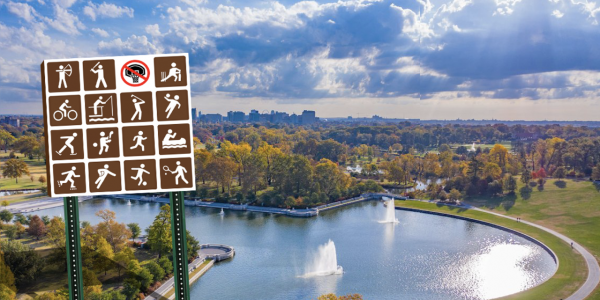Americanist Dinner Forum: The Racialized Sporting Landscape of St. Louis: Bias and Basketball in a Divided City
St. Louis is a divided city: ineluctably marked by racism and the legacies of racial segregation in the form of the “Delmar Divide.” St. Louis is also a championship city: host to the title-winning Cardinals, Blues, and, once, Rams and Hawks. And St. Louis is home to Forest Park, its “Crown Jewel” and one of the premier public parks in the nation, full of sporting and cultural amenities, many of them free. And yet there are currently no basketball facilities in the park, nor have there ever been, despite the game’s tremendous popularity over the last 130 years. Several other St. Louis parks, including Tower Grove Park and Lafayette Park, once had basketball, only to have the hoops taken out due to “disrepair.” Given the sport of basketball’s popular association with Blackness over the last 60 years, it is not hard to surmise the reasons why the game is missing from these signature parks, all of which are found south of the red line that was (and is) Delmar Boulevard. In this panel we will discuss how anti-Black racism has affected the sporting landscape of St. Louis and what St. Louisans can and are doing to change it.
Geoff Ward is Professor of African and African-American Studies and faculty affiliate in the Department of Sociology and American Culture Studies Program at Washington University in St. Louis. He is director of the WashU & Slavery Project, a university initiative based in the Center for the Study of Race, Ethnicity & Equity (CRE2), in partnership with the consortium of Universities Studying Slavery. Ward served on the national advisory board for Monument Lab’s National Monument Audit, and is a member of the Mayor's Commemorative Landscape Taskforce in Clayton, MO, and the Reparative Justice Coalition of St. Louis, a network of volunteers working with Equal Justice Initiative and other partners to address legacies of racist violence in the region. He is collaborating with Prof. Anika Walke (History) to co-lead Memory for the Future in 2022, a reparative public humanities lab supported by the Redefining Doctoral Education Initiative of the Center for the Humanities.
Kelly Harris is an Assistant Professor of Occupational Therapy and Surgery (Public Health Sciences) at Washington University School of Medicine. She is also a licensed speech-language pathologist and has provided clinical services in medical, educational and community settings for more than 20 years. Harris leads the Health Equity, Opportunity, and Education Research Lab. Her research agenda seeks to understand how systemic racism and specifically efforts to support and resist equity in health and educational settings operates to limit achievement and opportunity for youth with chronic diseases, specifically asthma and sickle cell disease. She is a Faculty Affiliate of the Social Policy Institute, and a Faculty Scholar at the Institute for Public Health. She is also a member and the current Chair of the Forest Park Advisory Board.
John Early is Senior Lecturer in the Sam Fox School of Design and Visual Arts at WashU. He is also a multidisciplinary visual artist whose site-based work explores the textures, layers, and histories of place. Since 2020, Early has collaborated with Noah Cohan on “Whereas Hoops,” a project combining public scholarship, spatial interventions, and activism to address the absence of basketball courts in St. Louis’s Forest Park. In April 2022, Early’s essay about a basketball court in North St. Louis was included in the edited volume, “The Material World of Modern Segregation: St. Louis in the Long Era of Ferguson.” In addition to participating in public projects based in Chicago, St. Louis, and Florence, Italy, Early has exhibited widely across the Midwest and nationally. He is a Faculty Affiliate at the university’s Center for the Study of Race, Ethnicity & Equity.
Noah Cohan is Assistant Director of American Culture Studies at WashU. His research and teaching are oriented to the intersection of American fan cultures, sports, and narratives, particularly as they pertain to race and gender. As co-creator of “Whereas Hoops,” he has extensively researched and written about the history of basketball in St. Louis and its parks. He is the founding coordinator of the Sports Studies Caucus of the American Studies Association, co-convener of the AMCS program initiative in Sports and Society: Culture, Power, and Identity, and a Faculty Affiliate at WashU’s Center for the Study of Race, Ethnicity & Equity.
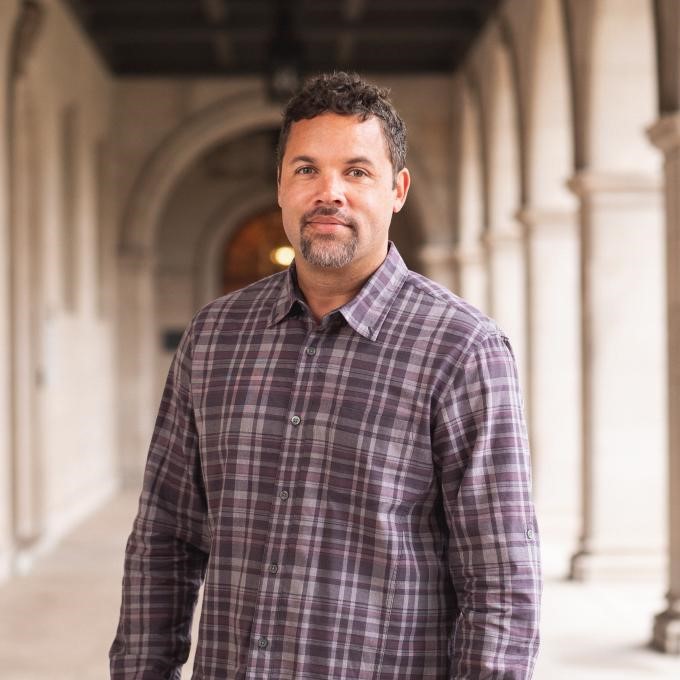
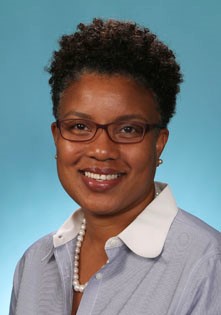
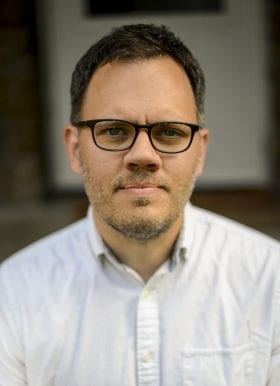
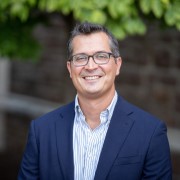
This event will take place in person in Umrath Lounge. Due to the continuing pandemic, food will not be served and AMCS strongly encourages everyone to wear masks for this event, as some members of our community are immunocompromised. Please RSVP using the link below by Monday, October 24th
RSVP
